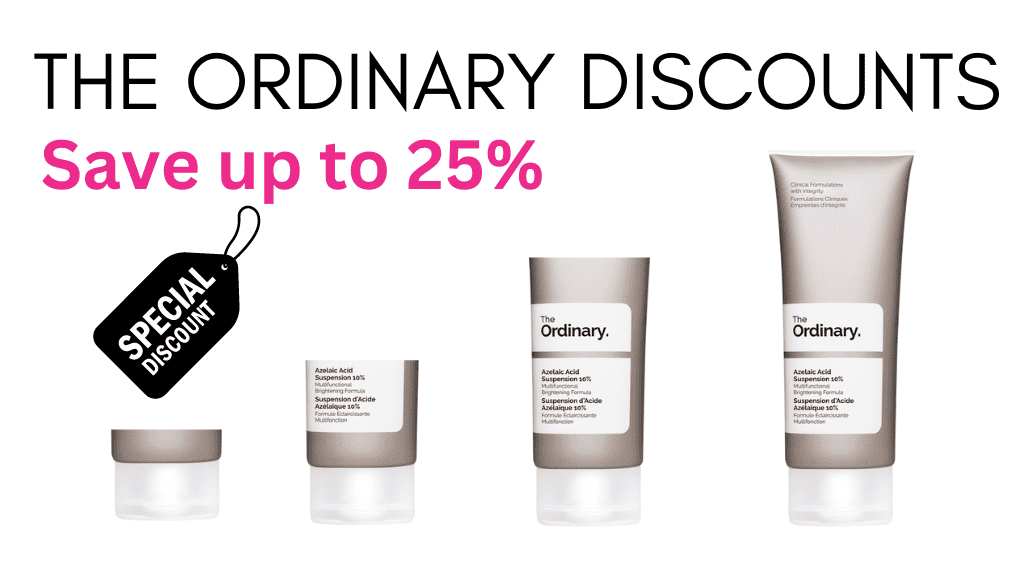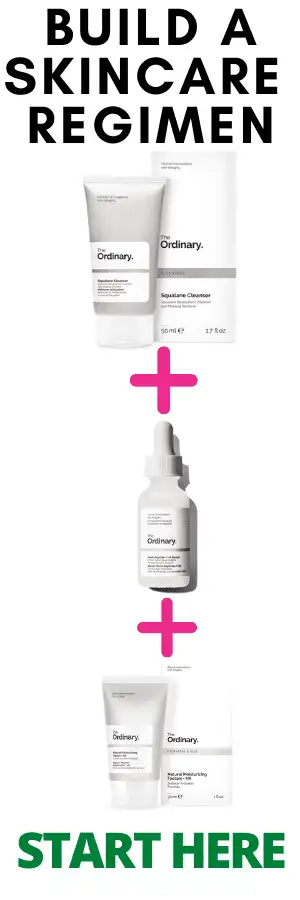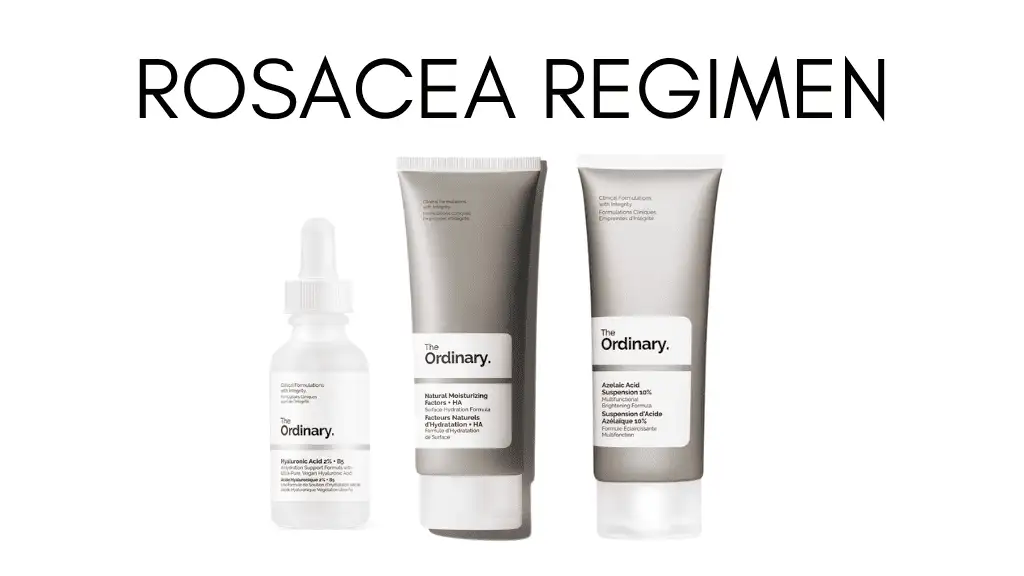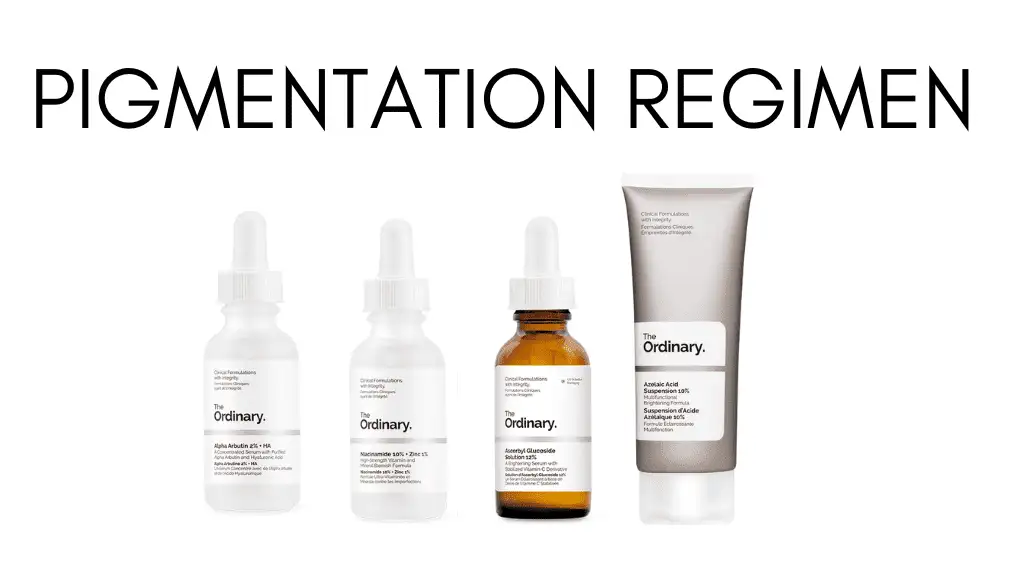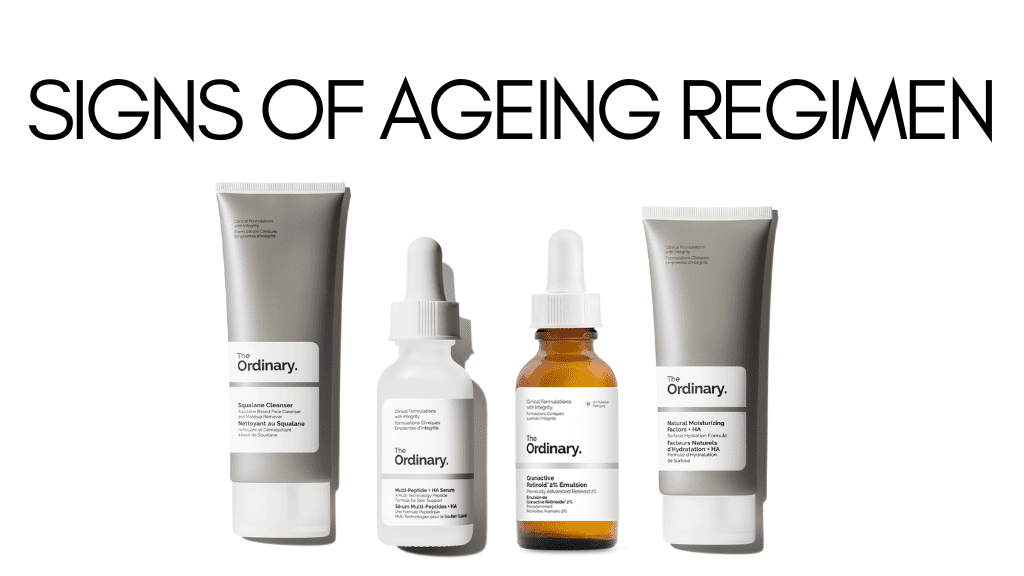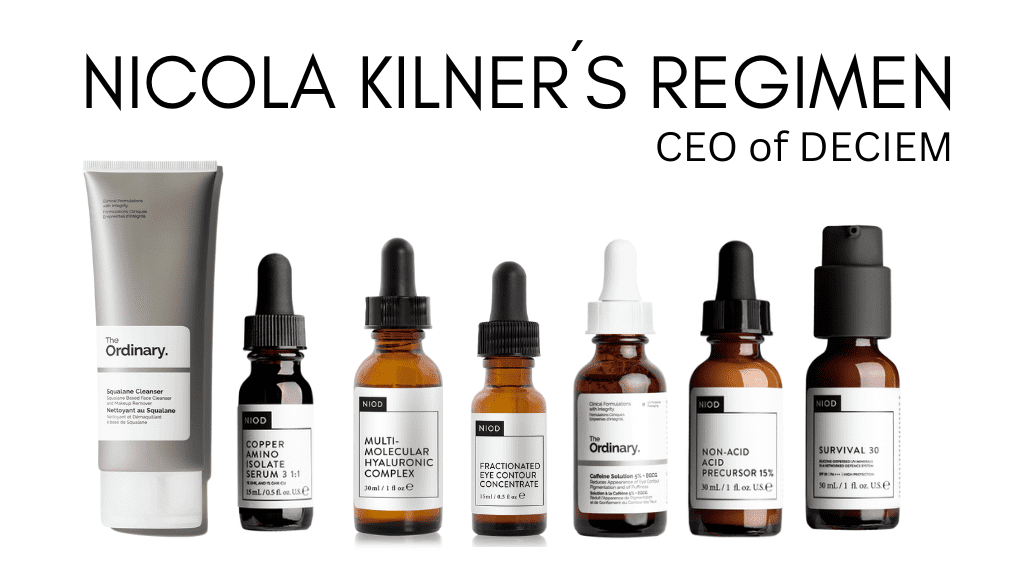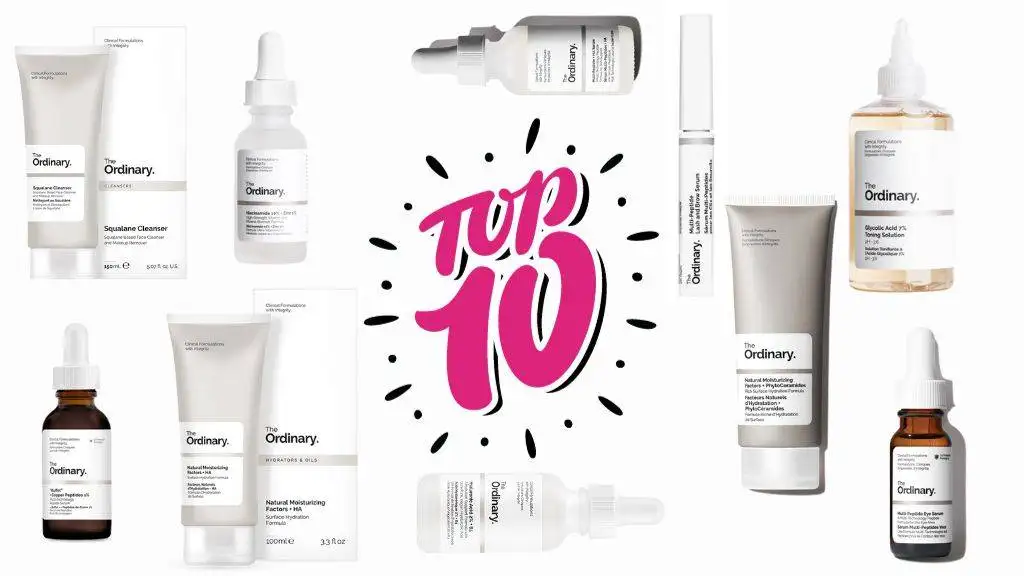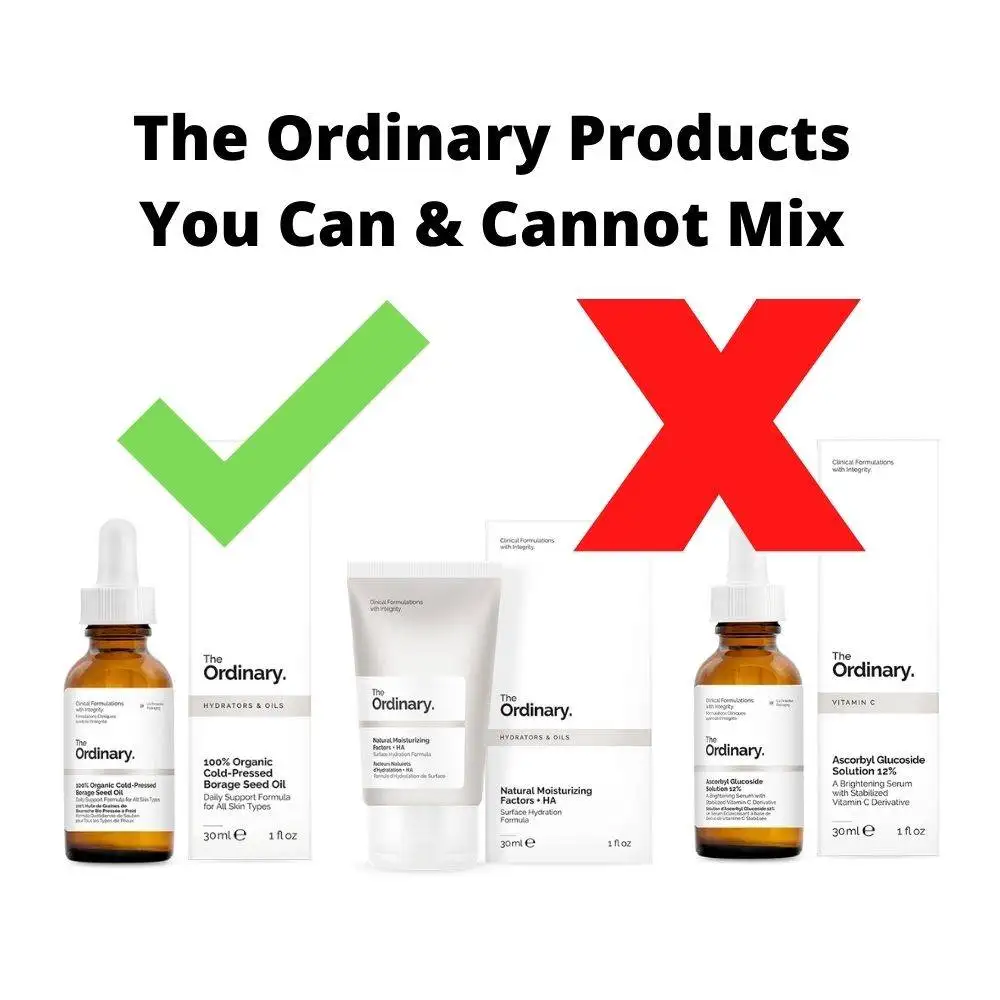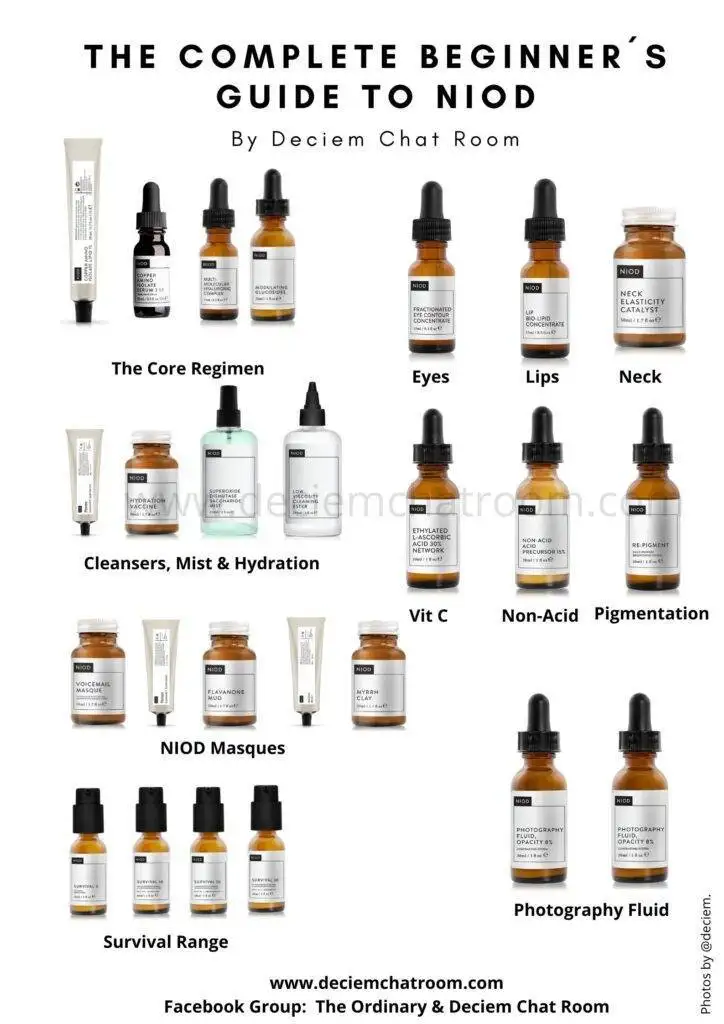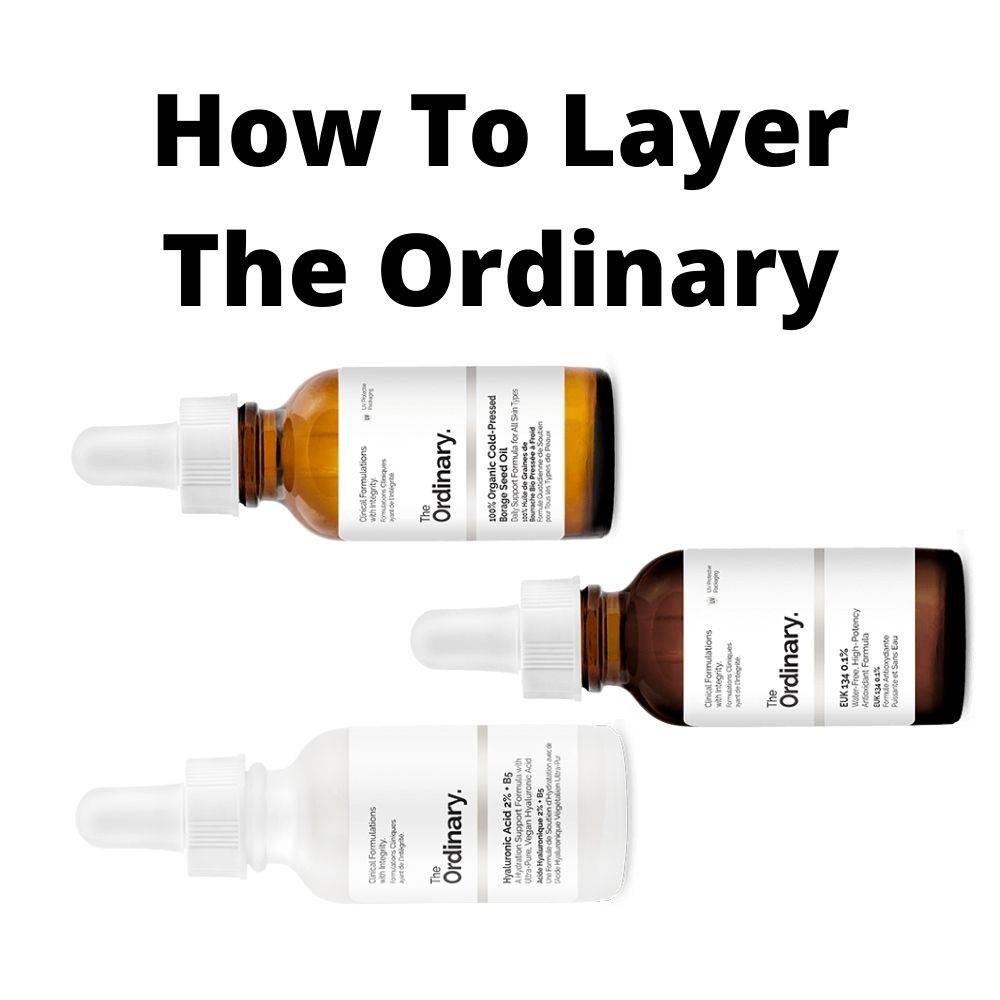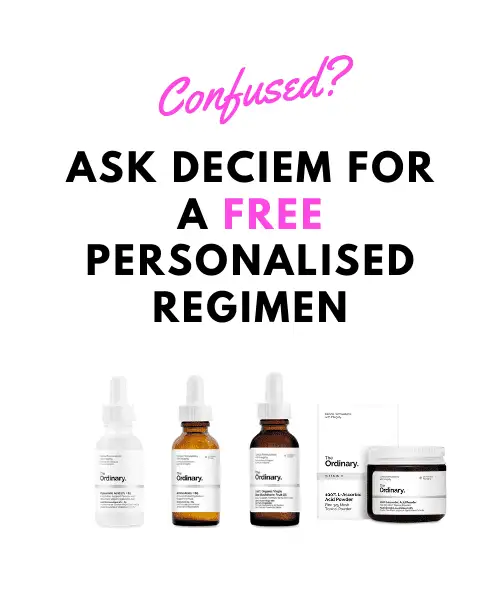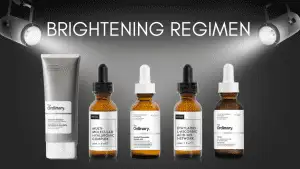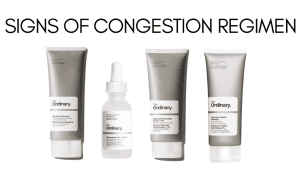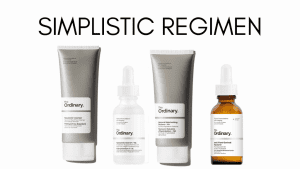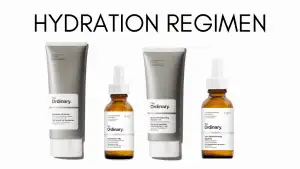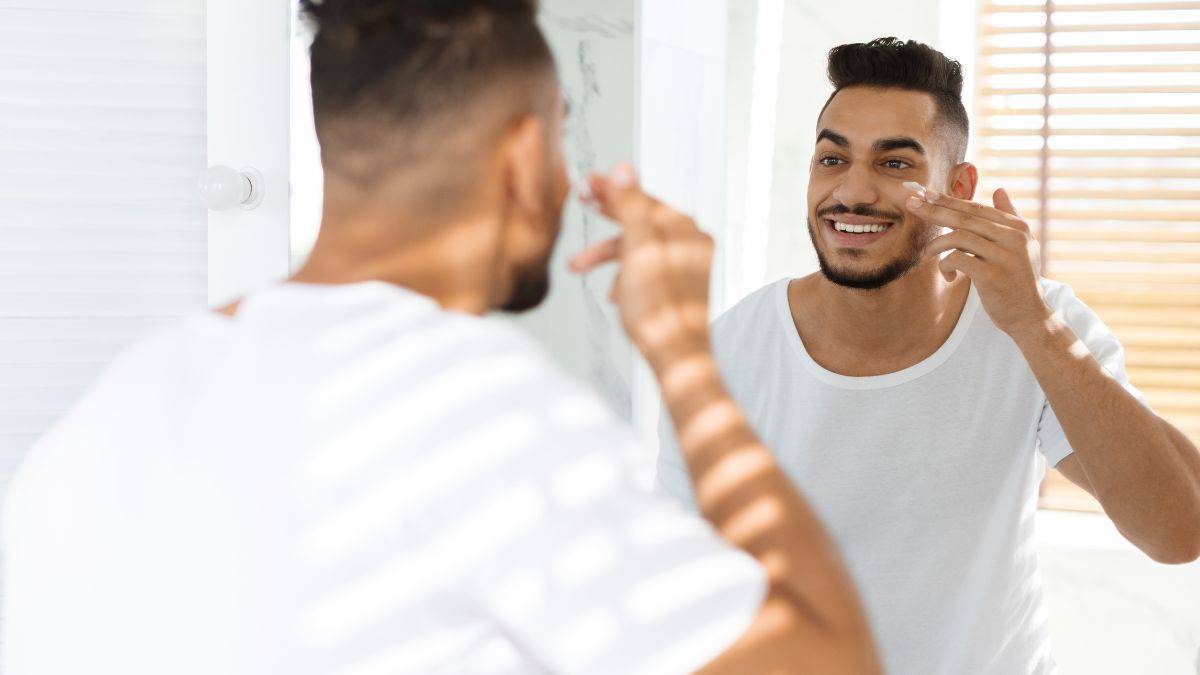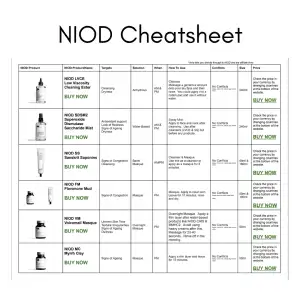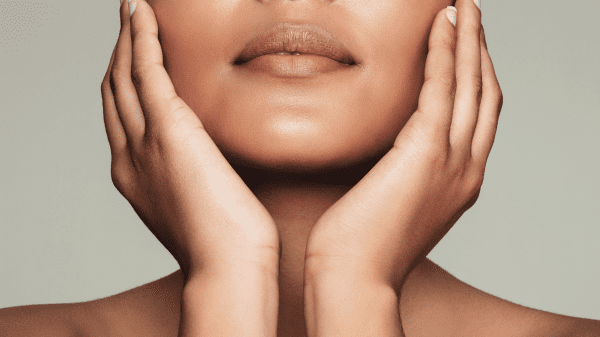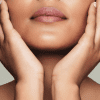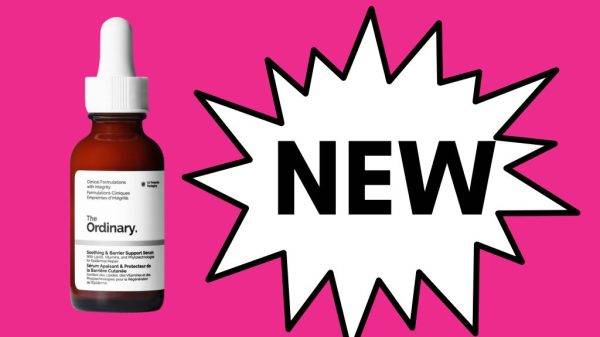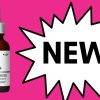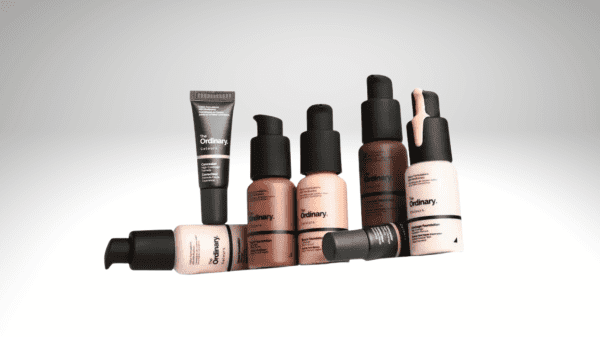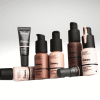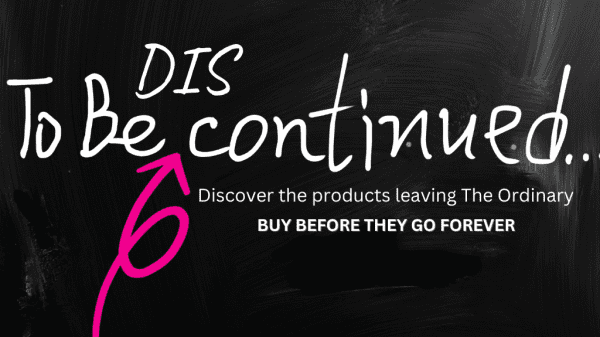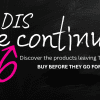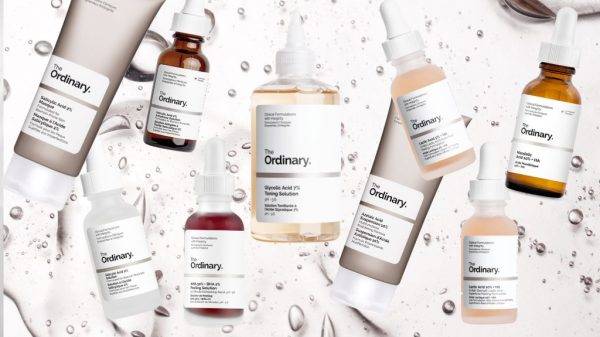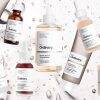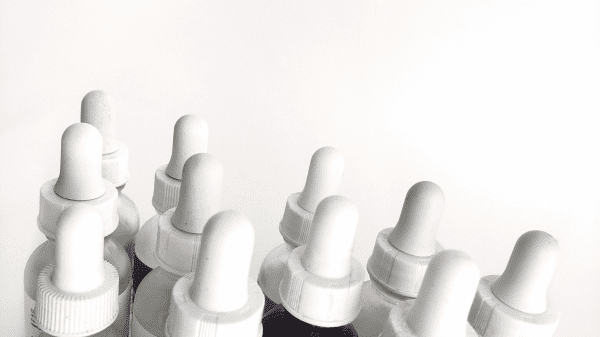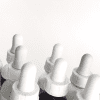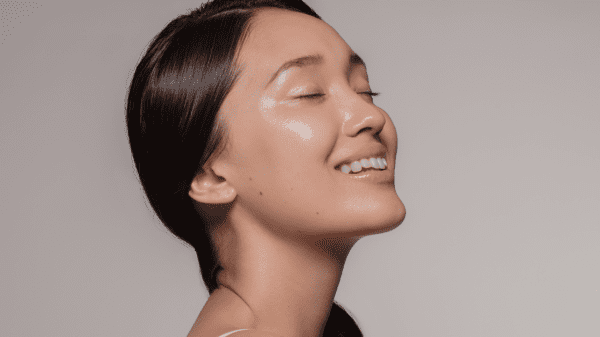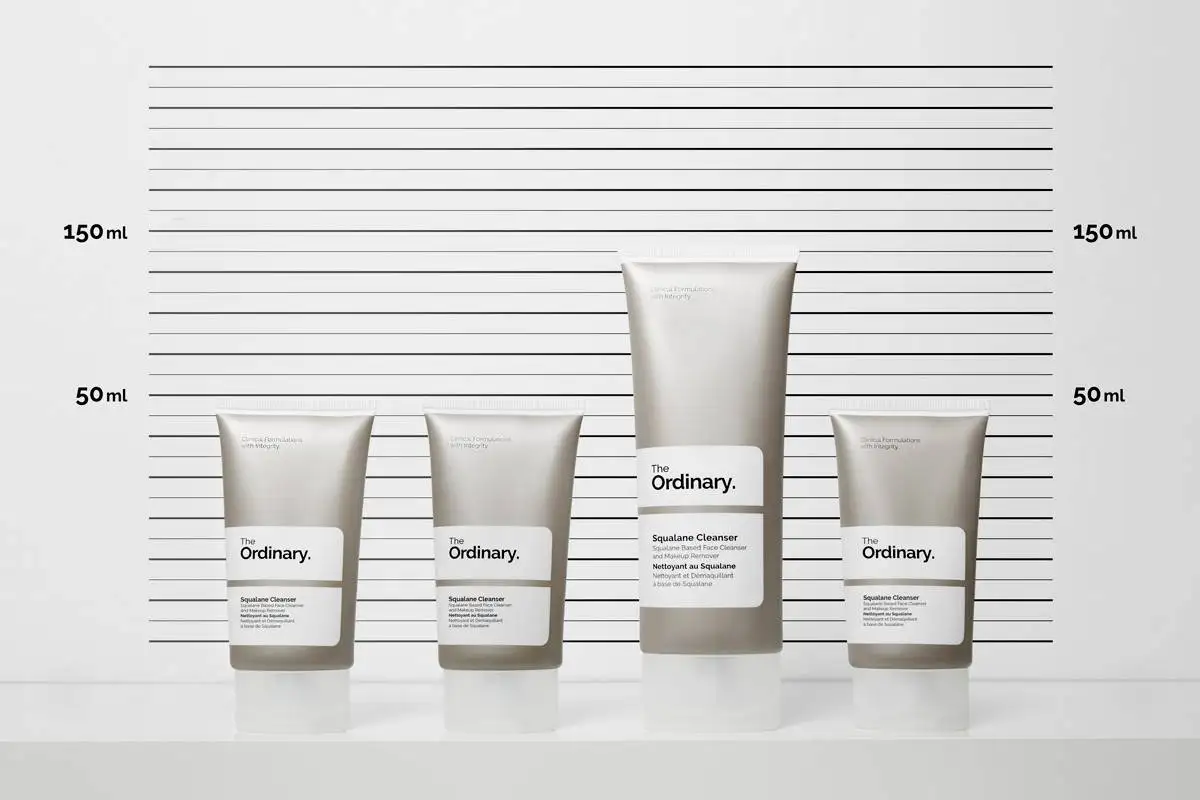The Ordinary Rosacea Q&A – Deciem Chat Room
Debbie Thomas from the D.Thomas Clinic London joined us in The Ordinary & Deciem Chat Room Facebook Group for a Q&A all about Rosacea.
Rosacea is an incredibly interesting topic and skin condition, which I think many people may have but don’t even realise. If you have a lot of redness, rosy cheeks, flushing, and visible blood vessels in your face, this could be Rosacea, along with many other symptoms. It may come and go and certain times and can be set off due to stress, food, drink and many other factors.
If you think there’s a possibility you have Rosacea, try to speak to someone. Try to keep a diary of what you eat, drink, do or use that could possibly have triggered your Rosacea. Everyone’s skin is different, so it’s important to really get to know yours and what is making it react.
Read all about rosacea & The Ordinary products.
The Rosacea Q&A with Debbie Thomas
How can you tell if you have Rosacea?
“Rosacea is normally diagnosed by a doctor (dermatologist) as a clinical condition. The symptoms most commonly associated with rosacea are being very prone to flushing, developing small broken veins in the areas you flush, and the skin feeling tingly, itchy and uncomfortable. Some people will also see spots coming up in the area, these can be small rash-like bumps or bigger more solid painful lumps which don’t seem to have anything in them. “
“When you have had rosacea for many years, you will notice the flushing becoming more prominent (stays for longer), and all the other symptoms become more evident. It is most common on the nose and cheeks but can be on any face area. Ladies with lighter skin tones aged 35-65 seem to be the most susceptible. However, it can affect anyone. ” – Debbie Thomas, Rosacea Q&A.
Since developing rosacea, some skin on my nose has turned a slightly purplish. I am worried I will end up with rhinophyma. Is this inevitable?
“No, not at all. It would be a texture change that could indicate you’re susceptible to rhinophyma rather than colour. The skin thickens and takes on a waxy feel. It sounds like you have some slightly larger broken blood vessels in the area, which can be blue rather than red. If this is the case, it is treatable with lasers with a really good success rate. For complete peace of mind, if possible, it’s always best to get a proper diagnosis from a professional who can look at your skin directly.” – Debbie Thomas, Rosacea Q&A.
Are there any specific facials or treatments I can have that could help?
“This is a tricky one as there are many things to consider, from the severity of the rosacea to the overall skin condition and whether you’re looking for a more traditional approach or more modern clinical treatments. For my clients, I’m all about the high-tech. I have to take a combined approach. Lasers and IPL give the most consistent results, but you need to be cautious not to overdo it. Always go to someone who is experienced in working with sensitive and rosacea-prone skin. “
“I also use peels, LED light therapy, and home care products. With so many brands and techniques available for traditional facials, I couldn’t narrow it down to what is good. Instead, I would say avoid brands that are highly fragranced, oily, or high in alcohol. Also, avoid heat like steaming and abrasive treatments like crystal microdermabrasion or scrubs.” Debbie Thomas, Rosacea Q&A
How long should we give products a chance to work to know if they will help?
“If you´re not having a bad reaction (allergy, rash), then 6-12 weeks is the minimum time it takes to see benefits from products. It can be a little bit disheartening if you don’t see big changes when you invest in new skincare, but it is important to understand the product is function. Sometimes you don’t get a big wow moment, but if the science is sound, we know that over time, certain ingredients support the skin’s health; they act as preventatives and protectors.” Debbie Thomas, Rosacea Q&A
Rosacea Q&A
My cheeks become very red and flushed after certain wines and cava. Would this be classed as Rosacea? Or is Rosacea something you have all the time?
“Flushing while drinking alcohol (or specific drinks) is definitely an early indicator that you could have mild rosacea. Unless you have it diagnosed by a dermatologist, you can never be 100%. Still, most of my clients do talk about the progression of the condition, from occasional flushing every time they were exposed to the same trigger, for instance, every time they had wine or spicy food. “
“It could take several years, but they normally felt that more things would trigger the reaction. I wouldn’t massively worry but rather just put a few things in place to strengthen the skin and ideally avoid the triggers you already know.” Debbie Thomas, Rosacea Q&A
Are there any skincare provisos re Soolantra? Anything that shouldn’t be used with it? Eg can it be used with Azeleic acid?.
““I would avoid using an active product at the same time (normally, it is applied once daily); if it is an am application, I would just follow with a light hydrator and SPF. Then, in the pm, you just have to cautiously try products to see if you have a reaction, I wouldn’t go crazy and use too many products or go aggressive with a really strong %, but I’m not aware of anything you have to avoid so shouldn’t be a problem.” Debbie Thomas, Rosacea Q&A“
How do you get rid of the blackheads from your nose when the skin is sensitive /dry and is supposed to avoid any harsh treatment or use a hot bath/water to open pores? Does seborrhoeic dermatitis and rosacea relate?
“Both conditions are inflammatory, so there will definitely be some crossover. I would say that niacinamide and azelaic acid could be good options for you as they are anti-inflammatory but should also help with texture and pores.” – Debbie Thomas, Rosacea Q&A
Does rosacea ever go away, or is it just something you have to keep under control?
Rosacea is a chronic inflammatory skin condition. Chronic means long term eg no cure, however as there are lots of factors that can contribute to rosacea flaring up including hormonal, there are times I have seen it go dormant for months and for many years and no recurrence. Managing it takes a 360 approach; getting the right skincare is essential, but diet and lifestyle always have an impact in some way.
Rosacea Q&A
Do you recommend any diet-related items to complement treatments? Have read some interesting literature on the gut-skin connection.
I’m not a nutritionist, so I won’t go into huge detail. But in short, yes, I do think diet matters, and gut health is very important. In terms of what to eat more of its green veg all the way as they tend to be the most anti-inflammatory. I also love turmeric for the same reason, drink water and avoid (reduce) foods that cause inflammation and mucus buildup in the body, these tend to be animal-based foods, sugars and for many gluten.
I have always blushed easily, and with exercise, my face has almost plummed purple, and I have a burning feeling for hours afterwards. Is this a form of Rosacea?
It sounds very likely that you have rosacea. You have several of the common symptoms.
Are there some preventative things you can do if you don’t suffer to ensure you don’t get Rosacea in later years?
Some people never get it. If you think you may be genetically predisposed but don’t have current symptoms, it is about weighing up what skin concerns you do have with maintaining healthy skin. SPF is key regardless of skin concern, but the DNA damage from UV rays weakens skin, making it more prone to inflammatory conditions.
A good antioxidant for the same reason, it helps protect against the weakening oxidative stress from the sun, pollution, etc. Then, the peptides are strengthened and repaired. Avoid things that make you flush or go red for prolonged periods (saunas, steam rooms, hot yoga, etc).
Is Rosacea more common in men? I know more men with it than women. Could that mean there is a hormonal link?
Strangely enough, it’s the other way around. However, women tend to get/start with milder versions which are often not diagnosed. Whereas men tend to get the more severe so more obvious form.
Rosacea Q&A
What is the difference between rosacea and couperose?
“Couperose is the term to describe the skin when there are also textural changes like enlarged pores; it also appears more oily or waxy than a traditional rosacea skin.” – Debbie Thomas
Can you have rosacea at a younger age? I’ve read that it typically appears after 30?
“Yes, rosacea can affect any age. It is just much more common over the age of 35“.
More Questions From The Rosacea Q&A
I’m 28 and have had redness on my cheeks, the sides of my nose, between my brows and under my mouth since my teens. It flares up from temperature changes (sauna, hot shower etc), alcohol and stress.
“My first bit of advice is annoying (sorry), but you need to try a steer clear of the things that flare your skin up. This is a progressive condition, and the more often it flares up, the quicker it progresses, this is because the intense flushing you get is inflammation and inflammation weakens the skin (just a little each time). “
“Your reaction to the azelaic acid may be because your skin is too compromised at the moment, so it is better to calm and restore. Lipids and anti-inflammatory products will help. You could also look at a milder azelaic acid product to start. I would consider an antioxidant and niacinamide as well. It is hard with these types of akin conditions because everyone needs something a little different. You also have the option of prescription medication or creams from a Dermatologist.“
Are acids and retinol a no-no with rosacea?
“Not at all, but you do need to be more cautious and slowly add them in. Also, start with milder formulations so you can test your skin’s tolerance. There will be cases where the skin is too compromised (sensitive and weakened). Then, you may have to spend time repairing and calming the skin before considering any stronger actives.“
Would you have any suggestions for the treatment of rosacea following Chemo treatment? My face is a constant red blotchy colour, and I have no idea where to start with it, besides the rosacea it is in very good condition.
“Firstly, I hope you now have the all-clear. So things to look at are first, are the blotches permanent (always there) if you press them, do they fade (blanch), and then come back quickly? If this is the case, it would be that you have a matting of tiny broken veins. The only way to treat these would be with laser or IPL (normally not an issue, but check with your doctor regarding timings). If it is the more traditional rosacea symptoms, then start with a calming product like NIOD´s MG, Modulating Glucosides, use ceramide-based products but not too rich, Cerave do a simple cleanser and moisturising lotion. “
“Ceramides repair the barrier function of the skin, which is the uppermost layer that protects the deeper living layers. When your barrier is not working well, more irritants can get in, and good things like moisture evaporate out. Peptides are also a good addition as they help strengthen the skin overall, and I recommend everyone use an antioxidant like vitamin C, which also protects and strengthens. Some people can find vitamin C irritating, so you can use another antioxidant if you need to. There are also prescription medications available from a dermatologist that can help. These can be used alongside your existing regime.“
More Questions From The Rosacea Q&A
I have Finacea. Any suggestions for other skincare products to use with this? How long do I need to use the Finacea until I can try to layer other activities, too?
“Hi, so you are basically using prescription-strength Azelaic acid. So to start, I would be looking to add in some protective and restorative ingredients like lipids (found in NIOD MG) if your skin is tolerating the Finacea well, then I would start adding other products within 2-4 weeks. My clients play around with their regime until it suits their needs. Eg they may only use Finacea at night so they can use antioxidants, niacinamide and SPF during the day. ”
“The most important factor is to be constant with your products; if you feel like the rosacea gets under control, don’t jump ship with products (or your main ingredients). However, you could look at reducing Finacea to every second or third night, giving you the opportunity to use another product on those nights. Then, if you get a flare-up, you can simply increase the Finacea again. – Debbie Thomas Q&A “
Can I use metronidazole (for rosacea) with other skincare products (like niacinamide, glycolic acid, retinol, vitamin C suspension) for other skin concerns (ageing, acne scarring, textural issues)?
“Thank you! Yes, you can but don’t throw everything on at once though serums can go on first, wait 10-15 mins then apply Metronidazole. It is antibacterial so shouldn’t interfere with other products. In the am make sure to apply SPF.” – Debbie Thomas
Rosacea Q&A
The Ordinary Rosacea Regimen/Routine
As mentioned before, it is best to check with a professional if you think you have Rosacea. This regimen has been put together with some of the most effective products.
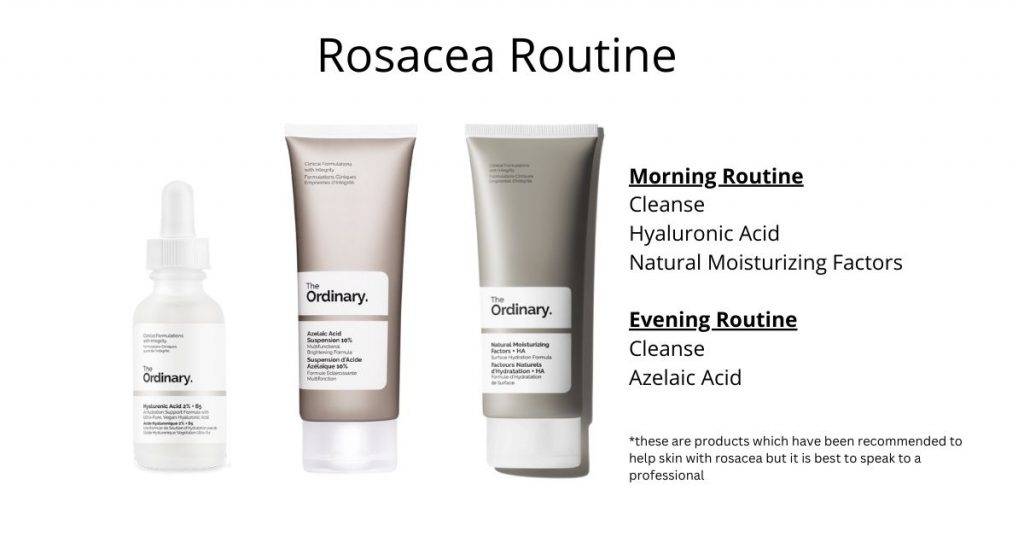
Deciem Chat Room – Rosacea Q&A
We hope you have found The Ordinary Rosacea Q&A page useful. You may find The Ordinary Rosacea Regimen Page useful.






